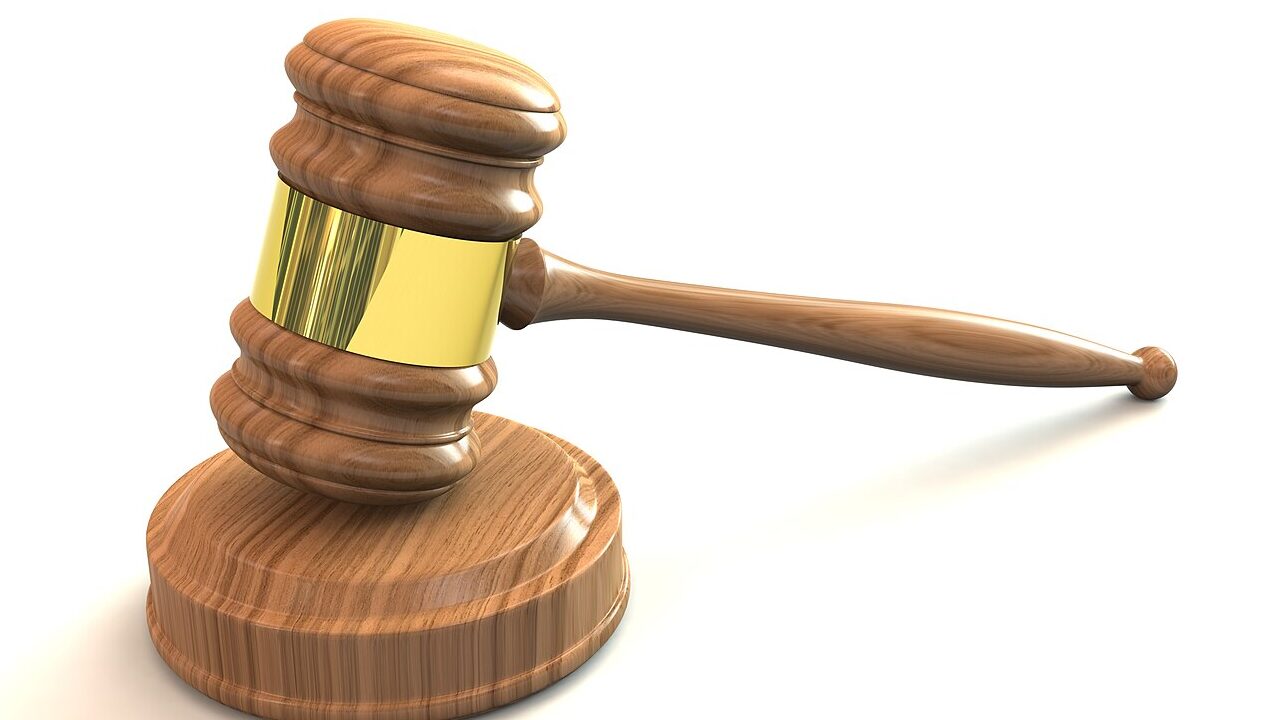Aguilar, ‘Personal Knowledge’ Law Hinder NV Voter Roll Cleanup
Francisco “Cisco” Aguilar, the Nevada Secretary of State, campaigned in 2022 with a promise to enhance electoral transparency but has reportedly undermined such efforts during his tenure. chuck Muth, president of the Citizen Outreach Foundation, criticized Aguilar for obstructing local election officials’ collaboration with integrity advocates. The foundation’s Pigpen Project aims to clean Nevada’s voter rolls by using data from the U.S. Postal Service to identify ineligible registrants. While the project has confirmed hundreds of ineligible voters, Aguilar’s office and Nevada’s Attorney General have allegedly hindered their efforts by imposing restrictions on processing residency disputes and dismissing challenges against potentially ineligible registrants.
Despite the project’s initiatives, including filing thousands of challenges based on confirmed address changes, Aguilar has directed county clerks to cease efforts in updating voter registration lists, claiming that challengers lack “personal knowlege” of registrants’ status. Muth criticized this requirement as unreasonable, suggesting it creates critically important hurdles to ensuring election integrity in Nevada, where universal vote-by-mail exacerbates the issue. Aguilar’s office has not responded to requests for comment on these allegations.
Nevada Secretary of State Francisco “Cisco” Aguilar campaigned for office in 2022 on a promise to “make our elections as transparent as possible to maintain the public trust.” He has spent his first two years as the Silver State’s top election official trampling transparency efforts and trust.
“It defies explanation. … It’s insane what he’s done,” Chuck Muth, president of the Citizen Outreach Foundation, told The Federalist this week in a phone interview. “The local elections people were cooperating and helping us until he stepped in and said, ‘No, you can’t do that.’”
The watchdog’s Pigpen Project is spearheading a campaign to clean up Nevada’s dirty voter rolls using cold, hard facts. As The Federalist has reported, the project uses government data — particularly the U.S. Postal Service’s National Change of Address (NCOA) database — to track suspect registrations.
But it’s more than just data tracking. The Pigpen Project put boots on the ground, showing up at addresses to confirm whether registrants have moved out and are no longer eligible to vote in Nevada elections.
Muth says the initiative has confirmed the ineligible status of hundreds of registrants who should not be on the voter rolls. But the Democrat secretary of state’s office and leftist state Attorney General Aaron Ford have stymied the efforts at every turn, Muth said.
‘No Interest in Fixing It’
Muth’s group launched the project’s work in January in Clark County, home to Las Vegas and Nevada’s most populous county. The conservative activist said elections officials were helpful then, providing guidance on the process to submit residency disputes. Apparently Aguilar didn’t care for the Clark County Election Department working with election integrity advocates. In March, the secretary issued a memo to all of Nevada’s county clerks and registrars of voters declaring that they would “need permission from their county commissions to process registration confirmations,” Muth said.
The Pigpen Project, right before Nevada’s June primary, then filed official challenges to potentially ineligible Clark County registrants who had moved. Election officials rejected the challenges, Muth said, because the complainants supposedly lacked “personal knowledge” that the registered voter had moved.
Subsequently, Muth said his team pulled April voter registration data and checked it against the list of voters in the primary records. The Pigpen Project found some 200 individuals on the state’s inactive voter list, ineligible to vote and disqualified from receiving a ballot. Nevada’s status as a universal vote-by-mail state (in which every registered voter in the state is automatically sent a ballot) has only exacerbated election integrity problems, election watchers say.
As Muth noted in a recent column, his organization filed nearly 4,000 challenges of voters suspected to have moved from the place where they were registered, based on Postal Service records.
“But not only had they filed a change of address, we were able to confirm that they’d RE-REGISTERED to vote in their new state,” Muth wrote.
After some county clerks began cleaning up the outdated registrations, Aguilar threw a wrench into the process with a memo in late August directing the clerks to stop. The Pigpen Project filed north of 30,000 challenges that elections officials “missed” in the clean-up of ineligible voters through the Registration List Maintenance process. None of the challenges were processed, thanks to the secretary’s directive, Muth said.
“After all of these memos, he’s shown he doesn’t want to work with us; he doesn’t want to cooperate,” Muth said. “That’s a huge problem in Nevada with the regular maintenance system of the voter rolls missing tens of thousands of ineligible registered voters, and he has no interest in fixing it,” Muth said.
Aguilar’s office did not return The Federalist’s request for comment.
Addressing the ‘Personal Knowledge’ Clause
The secretary of state repeatedly pushed the transparency barrier that the challengers didn’t have “personal knowledge” of the registrant’s move and therefore couldn’t contest the registration. Muth said the attorney general kept driving the legal argument, which can be extremely difficult to overcome.
“I guess the only way for us to have ‘personal knowledge’ that a voter had moved is if we’d helped them pack their boxes, loaded them in the U-Haul, and drove them to their new out-of-state home! Ridiculous,” the election integrity advocate wrote.
Pigpen Project investigators in many cases made calls and knocked on doors. They were told the voter listed at the address didn’t live there anymore. Muth said he personally checked at addresses in his precinct. He wrote on a half-dozen challenges, “The voter does not reside at the address listed above.” He signed the challenge on penalty of perjury. He wasn’t worried. He had received a firsthand account to back his assertion.
The challenges were rejected out of hand by the Clark County district attorney based on a “lack of personal knowledge,” Muth said. The local district attorney’s office didn’t even follow up and ask Muth how he knew.
“Had they asked, I would have informed them that I DID speak directly with two of the challenged voters personally via phone who confirmed they had, indeed, moved — exactly the kind of ‘first-person’ contact required by the judge,” Muth wrote in his column, noting that a court also had rejected the challenges on the bases of the the “personal knowledge” clause.
“They are really going to the nth degree to prevent our efforts to clean up the voter rolls here,” Muth told me in the phone interview.
Cleaning up Nevada’s dirty rolls will require a change in a law that requires “specific personal knowledge” that an individual on the voter rolls has moved and is ineligible to vote in the precinct or state, Muth said. He noted Texas law on registration challenges. The statute requires a challenge to be based on “personal knowledge,” but a secretary of state opinion notes an expanded definition of the term — including information based on “one’s observation and/or experience.” Personal knowledge may include “‘logical conclusions based on underlying facts’ and knowledge derived from various sources.”
On that front, Nevada election law states that “the county clerk in each county may enter into an agreement with the United States Postal Service” to obtain National Change of Address information. The statute specifically notes that the NCOA database may be used to “correct the portions of the statewide voter registration list relevant to the county clerk.”
“It needs to be changed from ‘may’ to ‘shall’ so the [election officials] can get access to the same information we’re using” to vet registrations, Muth said.
Election integrity reforms won’t come easy in a state legislature dominated by Democrats.
The election watchdog asserts that Aguilar and other leftists like to say there’s no evidence of widespread fraud that could alter the outcome of the Silver State’s elections. But it’s “hard to find evidence if you never look for it,” Muth wrote in his column.
“That doesn’t make us ‘election deniers.’ That makes us ‘election questioners,’” he added.
Matt Kittle is a senior elections correspondent for The Federalist. An award-winning investigative reporter and 30-year veteran of print, broadcast, and online journalism, Kittle previously served as the executive director of Empower Wisconsin.
" Conservative News Daily does not always share or support the views and opinions expressed here; they are just those of the writer."





Now loading...